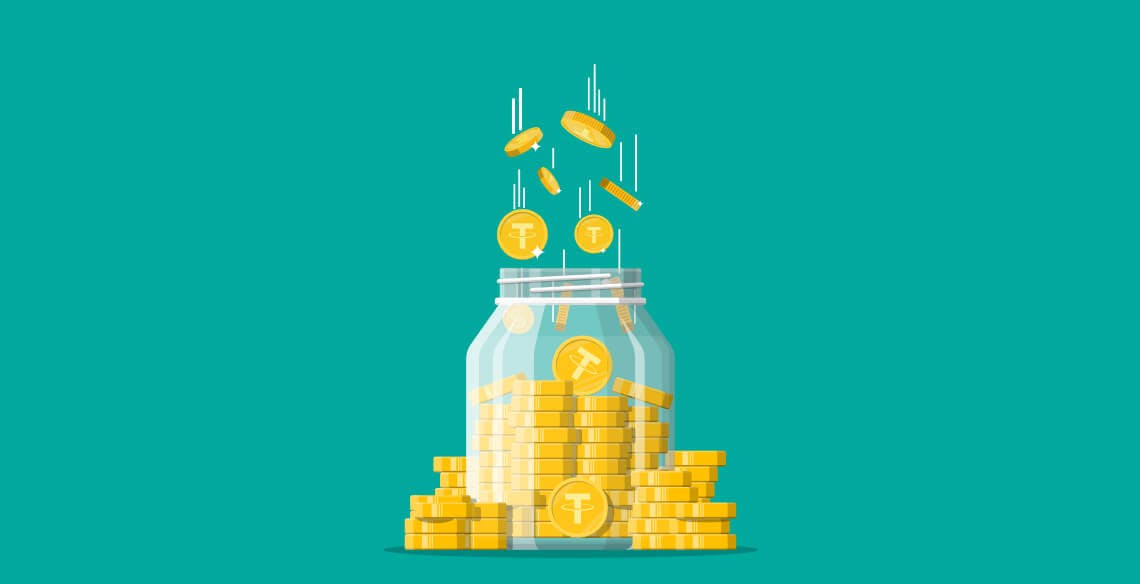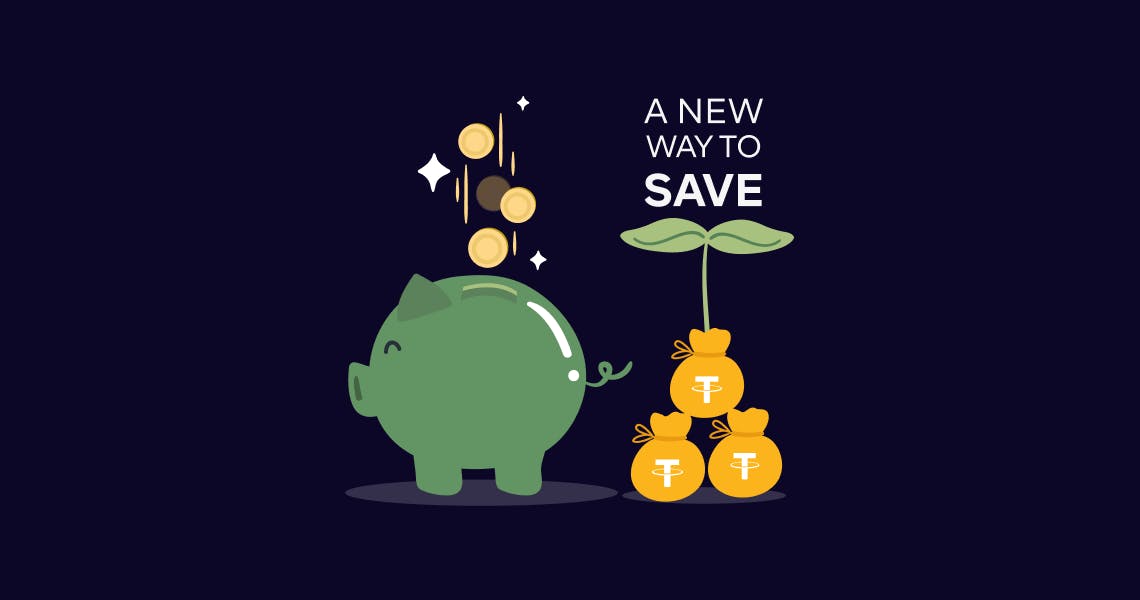How to Save with Stablecoin and Hedge Against Devaluation
Insights
Back to blog
Favour
2022-03-02
Insights
On this page
Stablecoins like tether allow you to save and protect yourself from inflation. Learn more on how to save with USDT and achieve your financial goals.
In the last decade, cryptocurrencies have gained popularity because of the revolutionary changes they bring to the financial ecosystem. With cryptocurrencies, Africans are able to breach the gap in international transactions, escape rigorous processes and enjoy fast transaction processing at a minimal cost.
However, with the economic crisis and recession ongoing, inflation has worsened with Nigeria’s inflation calculated at 17% in August 2021. Although the cost of living is increasing rapidly, this is not the case for our earnings. This has prompted Nigerians to find an alternative to Naira, and this is where stablecoins come into play.
What are stablecoins?
Stablecoins are a type of digital currency and as the name implies, have lower volatility, which they are able to maintain by being pegged to a valuable asset.
Stablecoins can be tied to a fiat currency, gold, or another cryptocurrency (for example, tether (USDT) is pegged to dollars). They draw their stability from the asset to which they are linked. One USDT (tether) is, for example, pegged 1:1 to the US dollar. USDC and TUSD are two other well-known stablecoins.
Stablecoins as a hedge to inflation
Inflation is an infamous cause of concern for Nigeria, with the value of the Naira eroding away. Nigerians have begun to save in stronger currencies such as the US dollar in order to protect themselves.
However, while this may appear to be a wise decision at first, it still leads to the depreciation of the Naira. This is because Nigerians rushing to save in dollars may end up buying them at exorbitant costs, increasing the dollar while weakening the native currency, the Naira. This is where stablecoins come in as an alternative to Nigerians.
How are Nigerians using stablecoins?
While Bitcoin remains the most popular cryptocurrency in Nigeria, stablecoins are gaining popularity as Nigerians seek to protect themselves against inflation, make digital payments, and save their funds. Stablecoins can be used:
- For international transactions: Because of its stability, lower risk, liquidity, and better protection, Nigerians can benefit from the increasing influence of stablecoin. The borderless feature of Stablecoin makes payment simple, convenient, and inexpensive. Nigerian traders, international students, or persons who need to send funds home and abroad have turned to stablecoins to make cross-border payments because of its faster transaction process and low transaction cost.
- To save funds: Nigerians have taken to saving their funds to ensure that the value of their money remains intact. In fact, some businesses have begun to store their funds in stablecoins and then convert them to cryptocurrencies such as bitcoin or Naira when they need to spend them.
- For purchasing cryptocurrencies: Stablecoins are lauded as a simple way to get into the cryptocurrency ecosystem without risking your money, as well as a less expensive way to send money over the world. Many Nigerians who trade cryptocurrencies frequently use stablecoins like USDT to buy other cryptocurrencies on exchanges that do not accept the local currency, naira.
- Bridge the financial gap: Despite the presence of multiple banks, a large percentage of Nigerians, the underbanked and unbanked, still find it difficult to obtain financial services. Stablecoin helps to bridge the gap that traditional banking services are unable to attain by making financial services easily accessible to them.
In fact, it is expected that Nigerians would soon be able to utilize stablecoin for cost-effective financial transactions like remittances, loans, payments, and wire transfers in the not-too-distant future. Locals will benefit from the use of crypto stablecoin since transactions will be considerably easier, cheaper, and faster.

How To Save with USDT
With Yellow Card, you can easily buy USDT at no extra cost and hold securely for as long as you wish. To buy USDT on Yellow Card:
- Log in to your Yellow Card account
- Fund your wallet with Naira
- Click on the deposit button and Select the Payment method “instant transfer.”
- Indicate the amount you wish to deposit and confirm the deposit
- A pop up would appear immediately; click on find a match
- Once a match has been found, you will be provided with the match's full name and account details. Transfer the amount to the account displayed on your screen. Only send the amount displayed, or your transaction will be unsuccessful.
- Click on I have completed the transfer. Do not click on I have completed the transfer if you have not initiated the transfer. - Buy USDT
Once your account has been funded, you can purchase USDT instantly. Select the "Buy USDT" option in your USDT wallet and input the amount of USDT you want to buy on the buy screen.
Remember that the funds in the wallet are yours and yours alone, and you can sell or withdraw your funds at any time of your choosing.
Stablecoins provide a way for Nigerians to control the risks and uncertainties that come with inflation and the devaluation of Naira. Yellow Card, a Pan African crypto exchange is committed to providing financial inclusion for Nigerians and the rest of the world. This is why, with Yellow Card, you can effortlessly purchase and sell USDT at the best prices in Naira at no extra costs.
Simply go to your Yellow Card wallet or download the Yellow Card mobile app from the App Store or Google Play Store for free to get started.
Disclaimer: This article is for information purposes only and should not be construed as legal, tax, investment or financial advice. Nothing contained in this article constitutes a solicitation, recommendation, endorsement or offer by Yellow Card to buy or sell any digital asset. There is risk involved in investing or transacting in digital assets, please seek professional advice if you require one. We do not assume any responsibility or liability for any loss or damage you may incur dealing with digital assets. For more information on Digital Asset Risk Disclosure please see - Risk Disclosure.


